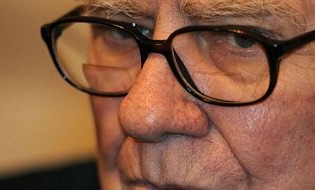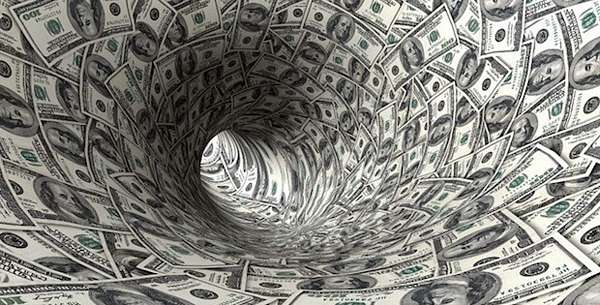 Great wealth and entrepreneurial success have always fascinated Americans. The amount of wealth that Warren Buffett has accumulated through astute investing and discipline is awe-inspiring.
Great wealth and entrepreneurial success have always fascinated Americans. The amount of wealth that Warren Buffett has accumulated through astute investing and discipline is awe-inspiring.
Countless portfolio managers, hedge fund managers, investment analysts, mutual funds, institutional pools of capital and individual investors have grown up devouring everything that’s been said or written by or about Warren Buffett and Charlie Munger over the years.
Warren Buffett’s unpretentious life-style draws Americans. His modest, folksy personality is an obvious contradiction to the common American impression of the lifestyles of the rich and wealthy. Warren Buffett does not enjoy the trappings of wealth. He carries a cell phone that usually switched off, does not have a computer at his desk, and drives his own automobile Cadillac DTS. He has lived in the same home he purchased for $31,500 in Omaha, Nebraska since 1958.
For years, Warren Buffett has drawn a moderate base salary of just $100,000 and has denounced excessive executive pay and extravagant purchases by other corporate CEOs.
Warren Buffett’s Legacy
In 2006, Warren Buffett, the world’s third richest man, stunned the world by bequeathing more than 85% of the $44 billion in his Berkshire Hathaway fortune to charity. That is the largest philanthropic gift in history. Five-sixths of his shares in Berkshire Hathaway would go to the Bill & Melinda Gates Foundation. Buffett has said that he was inspired by the philosophy of Andrew Carnegie, who had believed that huge fortunes that flow in large part from society should in large part be returned to society.
Warren Buffett has three children: Susie Buffett is the owner of a knitting-shop Omaha, Howie Buffett is a farmer in Illinois, and Peter Buffett is a new-age musician based in New York. Buffet’s three children received a modest inheritance from Buffett. He stated, “They’re comfortable, but they don’t have tons of money. I consider myself lucky to have three children who want to spend much of their time and energy working on projects that will benefit others.”
Millions of Buffett fans all over the world swear by his philosophy of value investing and have profited from the wisdom of the “Oracle of Omaha.” America admires him. In 2010, President Barack Obama awarded him the Presidential Medal of Freedom.
For a peek at the genius of Warren Buffet, see Alice Schroeder’s “The Snowball: Warren Buffett and the Business of Life.” “The Essays of Warren Buffett: Lessons for Corporate America” is a great anthology of Warren Buffet’s writing.





 Great wealth and entrepreneurial success have always fascinated Americans. The amount of wealth that Warren Buffett has
Great wealth and entrepreneurial success have always fascinated Americans. The amount of wealth that Warren Buffett has